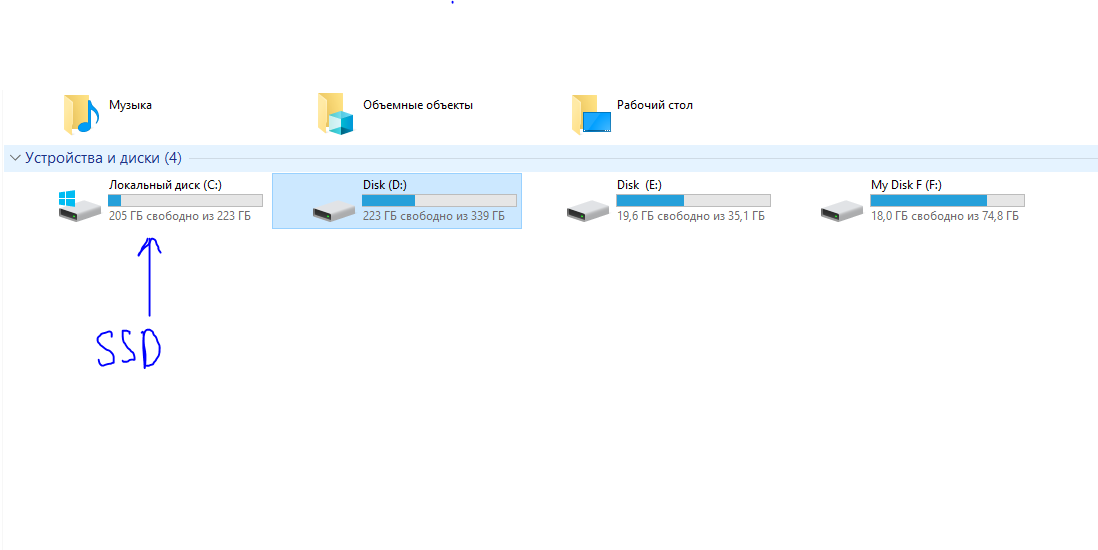Answer the question
In order to leave comments, you need to log in
Do I need to format a Windows drive to HDD?
Hello.
I installed a second new SSD drive in my laptop, and decided to transfer the system to it. Somehow I installed Windows 10 via a USB flash drive on a new disk. And everything seems to be fine, it works fast, but the truth is I didn’t take care (because I didn’t find the necessary information) about the old hard drive on which the system was installed. The system is still on it (if you run it through the BIOS). And now I don't know what to do. Do I need (and can) format it (in the photo "Disk D")? 
Thanks in advance for your reply!
Answer the question
In order to leave comments, you need to log in
Formatting is easy and fast. But there are some points.
It is useful to browse the folders for the presence of the necessary files system folders:
d:\Users\account_name_in_the_old_system\Contacts - records about the user's contacts
d:\Users\account_name_in_the_old_system\Desktop - contents of the user's desktop
d:\Users\account_name_in_the_old_system\Documents - documents username
d:\Users\account_name_on_old_system\Downloads - user's downloads
d:\Users\account_name_on_old_system\Music - user's music
d:\Users\account_name_on_old_system\Pictures - user pictures
d:\Users\account_name_on_old_system\Saved Games - saved games user
d:\Users\your_account_name_in_the_old_system\Videos - user's video files
It's also better to look at the contents of other folders where the information was placed. Some people do not use system folders, but create their own folder in the root of the system drive. For example: d:\MyDocs. From my point of view, this is correct, since a person initially learns to be systematic and knows and understands where and what lies.
If programs with hardware binding are installed on the old system and they allow you to untie the license, it is better to do this from the native system.
If after saving the information nothing else is needed, you can format it.
If Windows is "native", it came with the machine, then it is useful to make an image of the entire D drive, for example, Acronis True Image. But it can come in handy when selling a laptop, because. usually contains a factory partition with licensed OS recovery data, correctly installed drivers and proprietary software. To do this, I would physically disconnect all new drives, leaving only the old drive, and restore the OS. Different laptop manufacturers have different methods - you have to google. For example, I started the factory recovery using Alt + F2. After restoring the OS, user data will be erased, which will reduce the future Acronis True Image image file.
Where to store the image is a separate issue. The file can occupy a volume of 5-20GB.
Didn't find what you were looking for?
Ask your questionAsk a Question
731 491 924 answers to any question